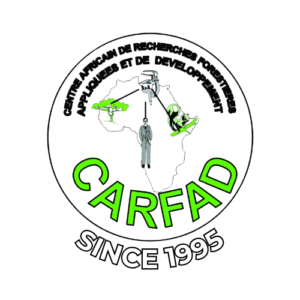In the heart of Cameroon’s East Region, the Diocese of Baturi witnessed the realization of a transformative project aimed at supporting the Federation of Community Forests in obtaining legality and commercialization certificates for wood. This initiative, spearheaded by CARFAD (African Centre for Applied Forestry Research and Development) in collaboration with the European Union and technical partners such as the Network of Community Forests and CODAS Baturi, has redefined sustainable forestry practices in the region.
Building Capacity and Ensuring Sustainability
The project began with workshops designed to inform and sensitize communities on the benefits of producing legal wood. Training sessions followed, focusing on:
- Revenue and conflict management.
- Regulatory frameworks governing community forests.
- Effective use of modern machinery for wood transformation and transport, including chainsaws and mobile saws.
Communities were equipped with tools and knowledge to independently manage their forest resources, marking a shift from dependence on external operators to self-reliance.
From Price Takers to Price Makers
The certification of legality enabled communities to establish lucrative partnerships, such as the agreement with Kamwood, a company dealing exclusively in legal wood. This partnership saw a dramatic increase in wood prices, from an average of 7,000 CFA francs per cubic meter to as much as 280,000 CFA francs. These additional revenues allowed communities to invest in vital infrastructure such as:
- Building bridges and wells.
- Equipping community halls with satellite dishes and televisions, reducing rural exodus by providing local entertainment.
Creating Jobs and Strengthening Autonomy
The project not only improved revenue but also created jobs across all stages of forestry, from inventory and logging to transformation and transport. Equipped with modern tools and vehicles provided through European Union funding, communities became active participants in managing their forest resources.
Lessons Learned and the Road Ahead
Key lessons emerged from this initiative:
- Community forests must be managed like enterprises to succeed.
- Even with minimal support, communities can align with VPA FLEGT (Voluntary Partnership Agreement on Forest Law Enforcement, Governance, and Trade) requirements.
- Communities can transition from being passive spectators to active drivers of their development, utilizing forest resources to combat poverty.
- Challenges such as wood wastage during inventory and exploitation require innovative solutions, with discussions ongoing with the Ministry of Forestry and Wildlife to address these issues.
A Call for Continued Support
While significant progress has been made, more remains to be done to fully empower these communities and optimize the sustainable exploitation of their forests. CARFAD and its partners are committed to seeing this journey through, inviting other development partners to join in making community forestry a powerful tool in the fight against poverty.
This project stands as a testament to the transformative potential of sustainable forestry when communities are equipped with the tools, knowledge, and support to take charge of their destinies.

